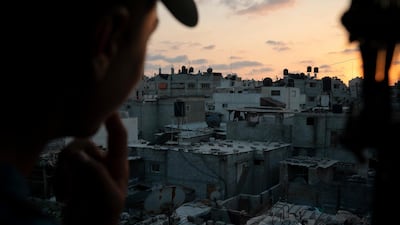One year since the start of the Great March of Return, children in Gaza are more vulnerable than ever, with more than two thirds experiencing psychological distress, according to new research.
A study published on Monday by the Norwegian Refugee Council said that 68 per cent of schoolchildren they surveyed in areas close to the Israeli border fence were experiencing “unusually high rates” of anguish.
NRC spoke to 300 schoolchildren aged 10 to 16, who had been exposed to stress-inducing experiences including the sound of explosions, losing their homes or losing people they know.
According to Unicef more than 25,000 children in Gaza are in need of psychosocial support, while 54 per cent of those NRC spoke to said they had no hope for a brighter future.
“The violence children witness daily, including the loss of loved ones, in the context of Israel’s crippling siege, which perpetuates and exacerbates Gaza’s humanitarian crisis, has left an entire generation emotionally damaged,” said NRC’s Palestine country director, Kate O’Rourke.
The ongoing cross-border fighting between Israel and Hamas surged last year when Palestinians in Gaza mobilised in support of their right to return to their ancestral homes, in what is now Israel.
Six child fatalities during protests have been reported in the first six weeks of 2019 alone. According to the UN Independent Commission of Inquiry, Israeli forces killed 34 children between March 30 and December 31, 2018. Thirty-two died from live ammunition or bullet fragments and two died from direct hits to the head from gas canisters. More than 1,500 children sustained injuries.
The latest violence was triggered by a surprise rocket fired early on Monday from Gaza. On Tuesday tensions remained high with Israeli forces massed along the Gaza frontier. Israeli air strikes in retaliation for rockets from Gaza are a frequent occurrence, but Israel's swift mobilisation of extra troops to the border area was unusual
In Gaza, some universities were shut but public schools were open, although many families kept their children home. The study also revealed that 81 per cent of children struggle academically owing to conflict-related stress.
"It is time that violence against children ends. For years, children in the state of Palestine and Israel have suffered not only physically but have also borne the brunt emotionally," Unicef said last month following the killing of two Gazan children on the border.
"Children are children. They must be protected at all times. Children should never be a target. Nor should they be exposed to any form of violence, by any party."

